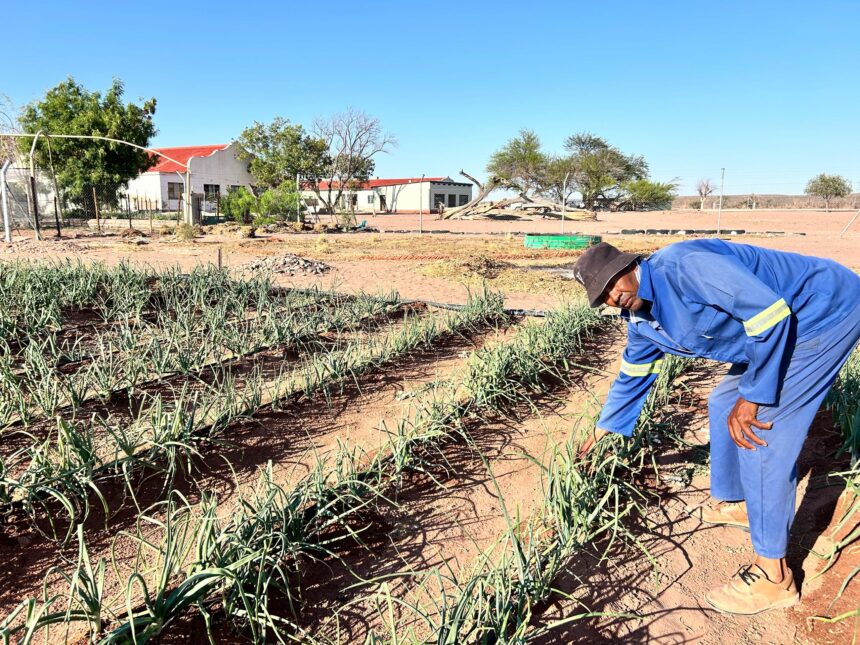MALTAHÖHE – In the heart of the Daweb Green Scheme in Maltahöhe, manager Jakobus Hanse faces many challenges that threaten the project’s mission to bolster food security in the region.
Despite its noble intentions, the project is plagued by theft, a lack of electricity, and water scarcity – all of which have made it difficult to sustain agricultural production.The farm was purchased by the agriculture ministry in 2011 for N$10 million. Hanse expressed frustration over the rampant theft occurring at the scheme.
“Local people from Maltahöhe flock to the resettlement to steal from the garden,” he lamented.
He highlighted that the issue had escalated to the point where law enforcement had to be involved. “Here, we sleep with one eye open to try and hear any tiny sound coming from outside,” he added.
The absence of electricity further complicates operational matters.
Hanse noted that although they have a cooling room for produce, it remains unused due to power shortages.
“When it gets super-hot, sometimes our vegetables get damaged,” he said. The lack of lighting also exacerbates the theft problem, making it easier for thieves to operate under cover of darkness.
Water scarcity is another pressing concern. The farm relies on a single borehole for water, which is currently malfunctioning.
“We use a generator to push water,” Hanse said, indicating that this solution is far from ideal, and adds to operational difficulties.
In addition to these challenges, he highlighted ongoing issues with wildlife invasions, particularly from baboons that have cost the project thousands of dollars in damages. He emphasised the urgent need for an electrical fence to deter these animals, but noted this is contingent on having electricity at the site.
Despite these obstacles, the Daweb Green Scheme continues to produce a variety of vegetables, such as spinach, onions, cabbage, beetroots, butternuts and tomatoes. The project has managed to penetrate local markets by supplying hospitals and stores in the area.
The government remains committed to supporting green schemes as part of its strategy to combat food insecurity.
Recently, finance minister Iipumbu Shiimi allocated N$233 million for summer cropping at various green schemes across Namibia. This funding could provide vital support in addressing some of the challenges faced by projects like Daweb.



